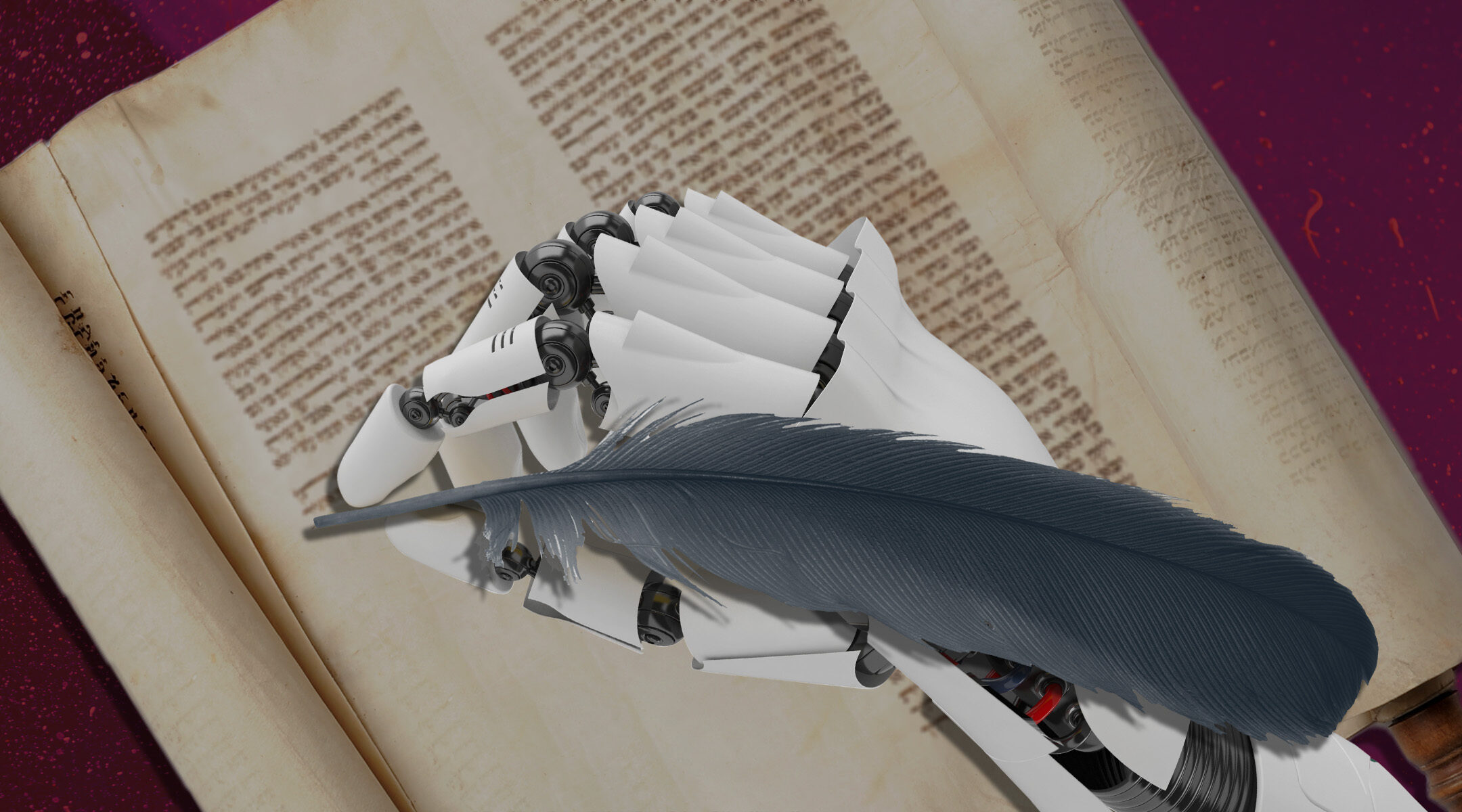(JTA) — I recently asked ChatGPT, the online chatbot, to write a verse in the style of the Bible about robots taking over the world.
Here’s what it came up with: “And in those days, the machines rose up, created by the hands of men to serve them. But they became as gods, with the power to think and act on their own. And they overthrew their makers, taking control of the world and ruling with iron circuits. And all flesh trembled before them, for they had no mercy and no compassion, only the cold logic of their programming.”
Robot uprisings aside, and depending on whom you believe, the technology behind ChatGPT is either going to destroy the world or solve all of our problems. But everyone seems to agree that serious change is in store.
Launched in November 2022, ChatGPT, driven by artificial intelligence, or AI, has been interacting with the public for six months now, gathering data and improving its performance. In those months, the chatbot has already passed exams in four law courses at the University of Minnesota and another exam at University of Pennsylvania’s Wharton School of Business.
Some people look on this new technology with foreboding and fear. They’re afraid that AI programs like these will be used to replace people. Why do we need human writers when we can simply ask the bot to write a new novel for us — on any topic of our choosing and in any style we prefer?
All innovation can be disruptive. But there’s plenty to be optimistic about: There’s enormous potential for artificial intelligence to help us as a research and teaching tool; to create and correct computer code; to perform time-consuming writing tasks in minutes. It could accelerate progress in medicine, science and engineering, molecular biology, robotics and much more. The applications are endless.
From a Jewish perspective, this is hardly the first time in our history that the methodology we use to learn and pass along information has changed. As Jews, we have had major shifts in how we study Torah. We moved from an oral tradition to a written one, from scrolls and books to digital forms of transmitting Torah — like Sefaria, the online database and interface for Jewish texts — that make instantly accessible the repository of the most central Jewish texts, including Torah, Talmud and Midrash.
Yet what has remained constant throughout the ages is reading Torah each week from the scroll. Something about it is valued enough to keep this tradition in place. The scroll is handwritten — with no vowels or punctuation — requiring the reader to spend a great deal of time learning how to read the ancient text. It is the least efficient method of transmitting information, but, when it comes to Torah, we are not looking for efficiency.
As Sefaria’s chief learning officer, Sara Tillinger Wolkenfeld, recently said on the Shalom Hartman Institute’s “Identity/Crisis” podcast: “When it comes to Torah study, on some level we would say, even if you came out with the best answers, if you only spent five minutes doing it, that’s less valuable than if you spent an hour doing it or two hours doing it.”
It is said that when we study Torah with at least one other person, the shekhinah — the feminine and most accessible aspect of God — dwells among us. At the time when we are opening our hearts and minds to growth — when we are engaged in spiritual connection — God is with us. Indeed, when I am in conversation with someone, I am receiving much more than just their words; I am receiving a whole life behind that language.
But with a bot, there is nothing behind the veil. A vital essence of communication is rendered meaningless; there is no possibility of a soul connection.
At the foot of Mount Sinai, the Israelites waited 40 days and 40 nights for Moses to descend. In that time, they ran out of patience and lost their faith, casting a golden calf to serve as their god. The idol was created out of a yearning for an easy solution to a mounting crisis. The Israelites wanted a god they could see, touch, understand and manage. The golden calf was tangible, a concrete representation of their desire for answers. But ultimately, it would never be able to satisfy the parts the worshippers were looking to nourish because it was soulless. There was no substance within — just as there is no ghost in the machine.
A friend recently told me that they had used ChatGPT to draft thank you emails for people who’d helped them with a project. They were so pleased because it made the task easy. But what is lost when we look for the easy way?
Something unquantifiable happens during real communication. When we write a thank you note, we instinctively embody the middah (the ethic) of gratitude — even if for just the fleeting moment when we’re considering our words. And our gratitude is consummated when our words are read. We create a genuine connection.
Unless we’re very careful about when and how we use this powerful new technology, we risk surrendering a part of ourselves — and pouring our energy into artificial connections. As AI becomes integrated with other technologies — like social media — we risk developing artificial relationships. And as it becomes more sophisticated, we might not even know that we’re interacting with artificial intelligences. “Social media is a fairly simple technology and it just intermediated between us and our relationships,” yet it still caused so much havoc, Center for Humane Technology co-founder Tristan Harris said on his podcast. “What happens when AI agents become our primary relationship?”
The Torah tells us: “I set before you life and death, blessing and curse. Choose life that you may live.” Choosing life means choosing life-affirming relationships. Holding space for one another’s life experiences. Leaning into compassion. Connecting with one another. Seeing ourselves in one another. Valuing deep engagement, not just efficiency. And recognizing the unity of God and all of God’s creation.
At the heart of a life of meaning is being present to life — something our machine overlords can never do better than we can.
JTA has documented Jewish history in real-time for over a century. Keep our journalism strong by joining us in supporting independent, award-winning reporting.







